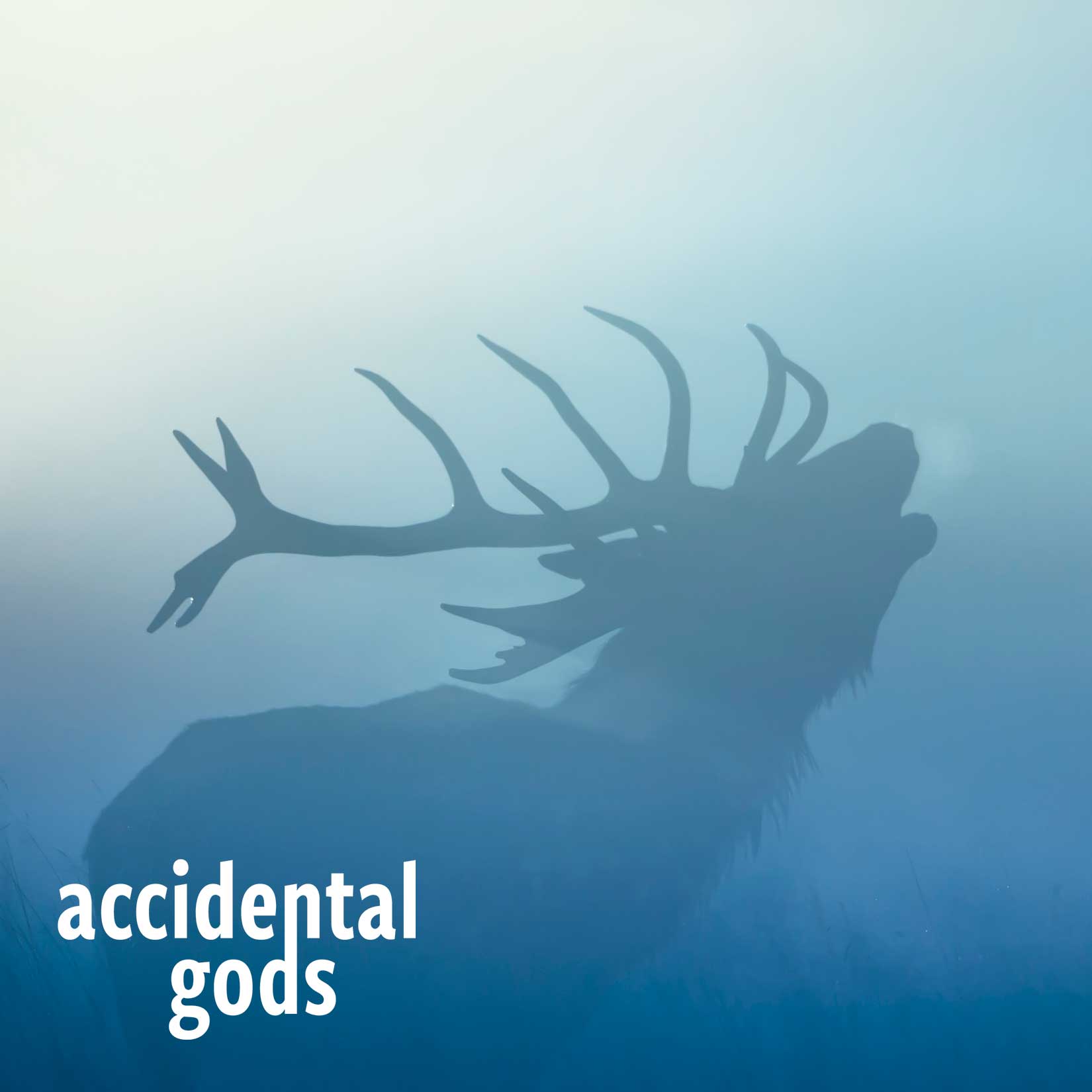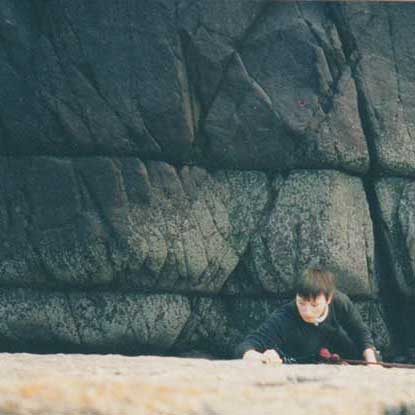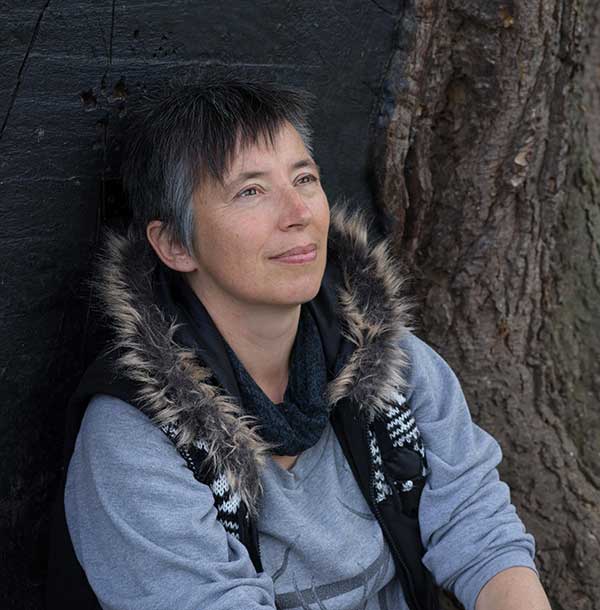BESTSELLING AUTHOR | COLUMNIST | TEACHER

Based in the borderlands between England and Wales—but a Scot at heart — Manda has been, variously, a veterinary surgeon, podcaster, acupuncturist, regenerative smallholder, columnist, homoeopath, blogger, life coach, renegade economist, contemporary shamanic teacher - and author of 16 novels, several screenplays and one non-fiction book.
BESTSELLING AUTHOR
COLUMNIST & TEACHER
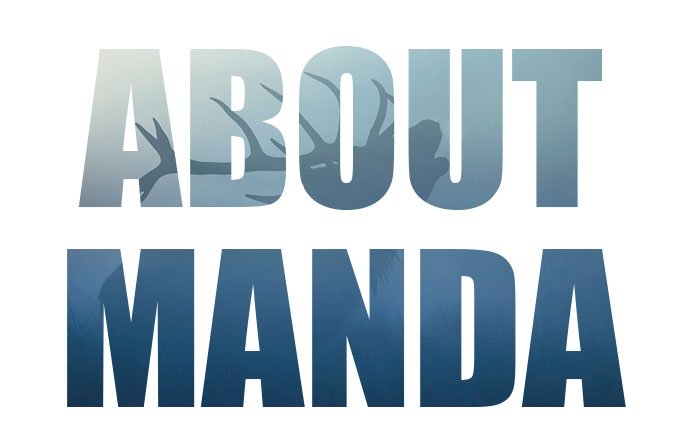
REAL LIFE
Manda’s life in a nutshell…
Manda grew up in a home full of injured birds: her mother ran a Raptor Rehab centre, which made for a less-than-standard childhood.
When she turned twelve, she got a milk round to earn the money for a pony (the world was a different place: ponies didn’t cost much and the local farmer was happy to employ little kids to run around and put milk bottles on doorsteps). She became quite good at carrying multiple bottles of milk – and yes, she earned the money at least to support the pony, which had been the deal. So the happiest day of her life was when Corrie had a foal—Phantom— and the saddest was when Phantom died. It’s no real surprise that she ended up being a horse vet specialising in neonatal equine intensive care (which largely entailed sitting with premature foals, praying they wouldn’t die).
She trained as a vet in Glasgow and her first job was House Surgeon at Cambridge: “This is Manda who comes from Glasgow, but we won’t hold that against her.” Her Glaswegian accent vanished on the spot and only returns (faintly) when she goes home.
At Cambridge, she discovered computer gaming at roughly the time it first took off. There was a role playing game centered around Eric the Red, but the real addiction was for Elite, played on a BBC Micro, which not only taught the possibilities of online fighting, but hacking into the source code. Discovering the line ‘Does your mother know you’re doing this?’ (in plain text) was as good, in many ways, as killing the enemy ships or managing to dock without destroying the vessel.
She spent a few years oscillating between Cambridge and Newmarket which had both specialist horse practices and the Animal Health Trust. But the niggling idea that there was more to life than this led her to write her first novel, Hen’s Teeth. To get it finished, she’d gone on a local Arvon-like writing course with Fay Weldon who’d said, ‘find your voice.’ The tutor the following year was Terry Pratchett who said, ‘Keep going, this will make the shortlist.’ (It did.) The upshot of this is that she is the only person in the entire world who has DMed Dungeons and Dragons with Fay Weldon and Terry Pratchett.
In the transition from full time vet to full time writer, she worked for three years in the computer games company set up by David Braben, the computer genius who co-wrote Elite (see above), thus proving that our heroes can become our bosses. And our friends.
Hen’s Teeth was shortlisted for the Orange Prize which you’d think would mean the author could give up the day job, but that was a few years away. In the interim, she studied acupuncture, visited shamanic teachers in the US (she’d been studying in the UK for well over a decade at this point) and then went to Dublin as a locum cover for the anaesthetist, falling back into clinical veterinary academia for the second time. It was fun, but the writing won out. She finished the Kellen Stewart trilogy and shifted to third person multiple view points for No Good Deed which went on to be nominated for an Edgar Award for best thriller in the US.
Everything changed when Inca (her first dog: a lurcher) caught a hare and triggered a vision quest which led to her ditching crime writing in favour of historical/dreaming fiction. She threw out the TV and the sound systems and sat instead every evening with the fire, walked the dogs (two by now) in the morning and wrote the dreams that arose in the afternoon, a process that ensured that by the end of six years, she had lost all touch with consensus reality. Like TV and canned music, she’s never gone back. She started teaching contemporary shamanic practice after the first of the Boudica books was published and now, 20 years later, her senior apprentice has taken over the bulk of the early courses. In the vision quest under the tree that had led to writing the Boudica novels, the gods/guides had said, ‘These will change the world’ – and they had at least changed her world if not the entire trajectory of humanity (there’s still time, though).
In the process, the Boudica: Dreaming trilogy had become a tetralogy and could easily have gone to six except the publishers said, ‘No more woowoo stuff,’, which probably wasn’t the cleverest call they ever made, but they were calling the financial shots, so…
So the Crystal Skull (which, truthfully, was pretty woowoo) was followed by the ROME series of ancient world spy novels which at first seemed to offer the chance to be John le Carré and Rosemary Sutcliff combined – and actually uncovered the historical basis for Christ, which was quite an interesting moment in a writing life.
After a change of editor which led to a change of agent, the Rome books were followed by two dual timeline novels blending contemporary France with Jeanne d’Arc (Into the Fire) and WWII and the interplay between the Maquis and the SOE – and particularly the utter iniquities of the UK and US governments in covering up Nazi war crimes for their own ends (A Treachery of Spies). The latter was shortlisted for the Saltire Award, which is Scotland’s premier literary prize – happy days – but then it won the McIlvanney Prize which is Scotland’s premier crime/thriller prize and winning it entails leading a torchlit procession down the cobbled streets from Stirling Castle which was a really, really good evening.
And in the midst of this – while editing Treachery – Manda had read for a Masters in Regenerative Economics at Schumacher College in Devon. Economics was not on her radar—the push to go was wholly shamanic— but it was easily one of the best experiences of her life. She is a perpetual student at heart and Schumacher in 2016/17 was one of the most inspiring places to be. Coming home, she had a different view of the world, the meta-crisis and, crucially of both the possibility of systemic change and the urgent need to bring it about.
The result of these was another house move – over the hill to a dilapidated smallholding – and the creation of both the Thrutopia Masterclass and the writing of her first Thrutopian thriller, Any Human Power, which strives to throw ghost-lines across the landscape of tomorrow in the belief that if enough people walk them, they’ll become solid paths and we can build on their reality to emerge into a whole new system, one where humanity has learned what it is to be a good keystone species, where the human and more-than-human worlds live in symbiosis, where we craft the foundations of a future we’d all be proud to leave to the generations that come after us.
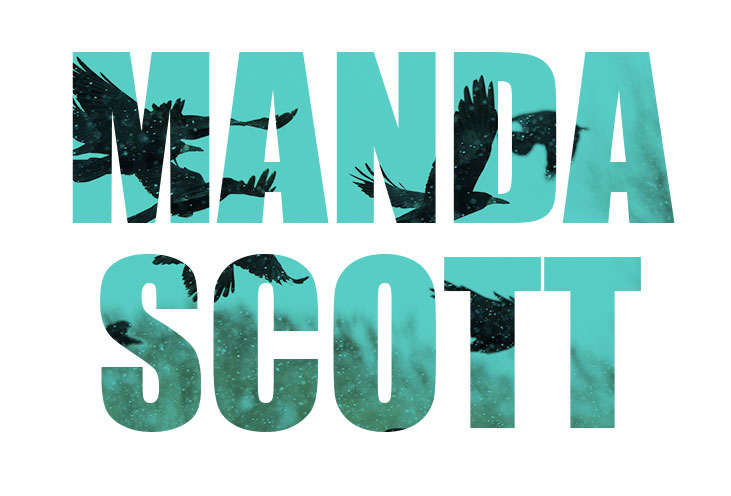
CONTACT MANDA
Writing is an incredibly solitary occupation. It's always good to connect with people who share the same realities. So go on, get in touch...

